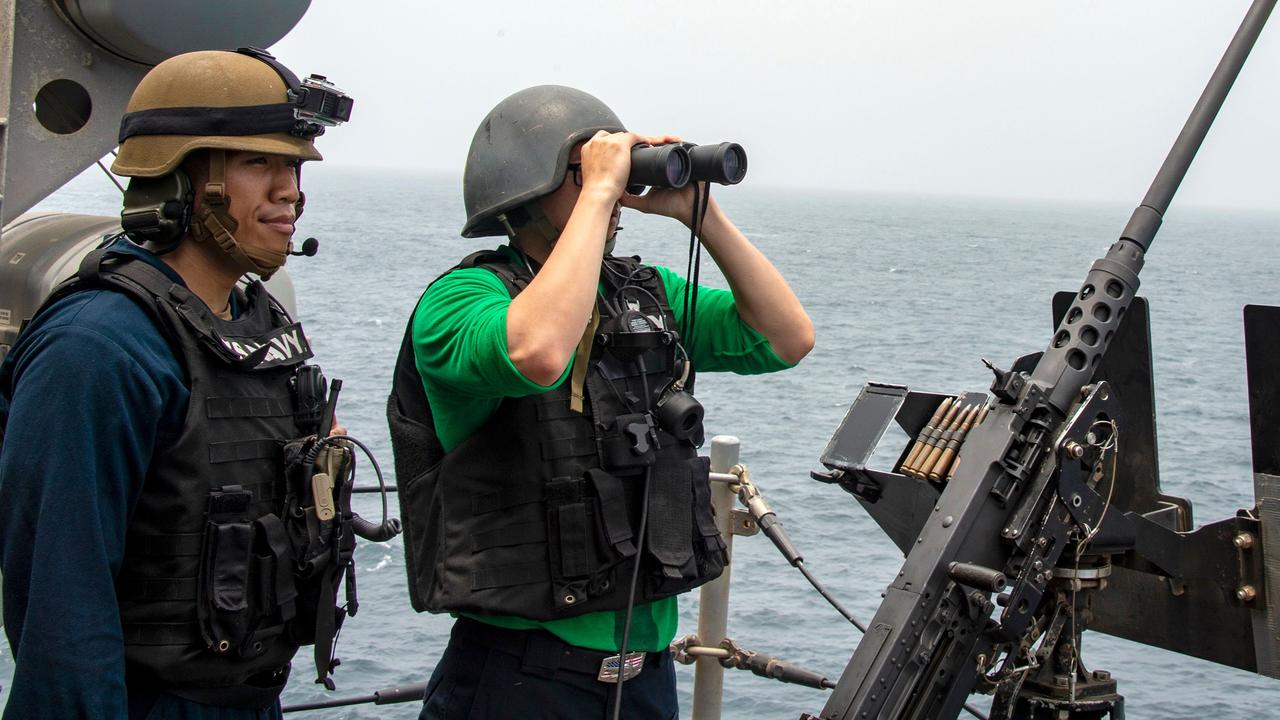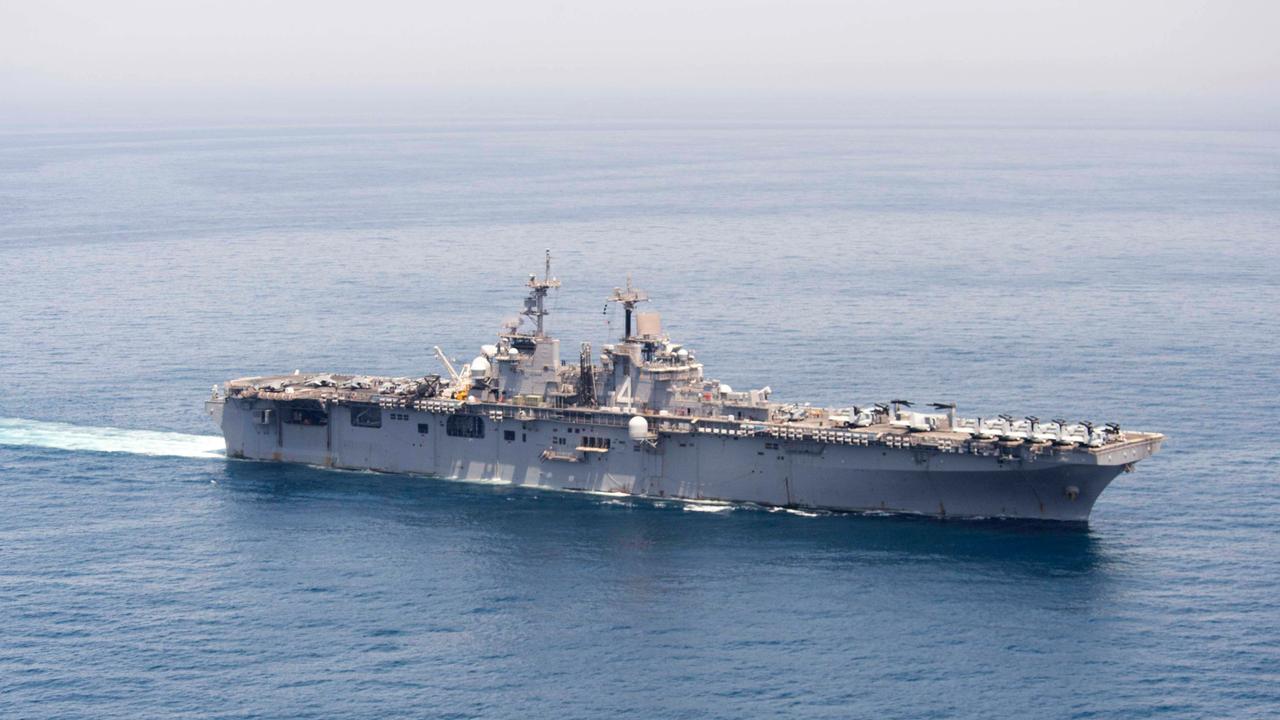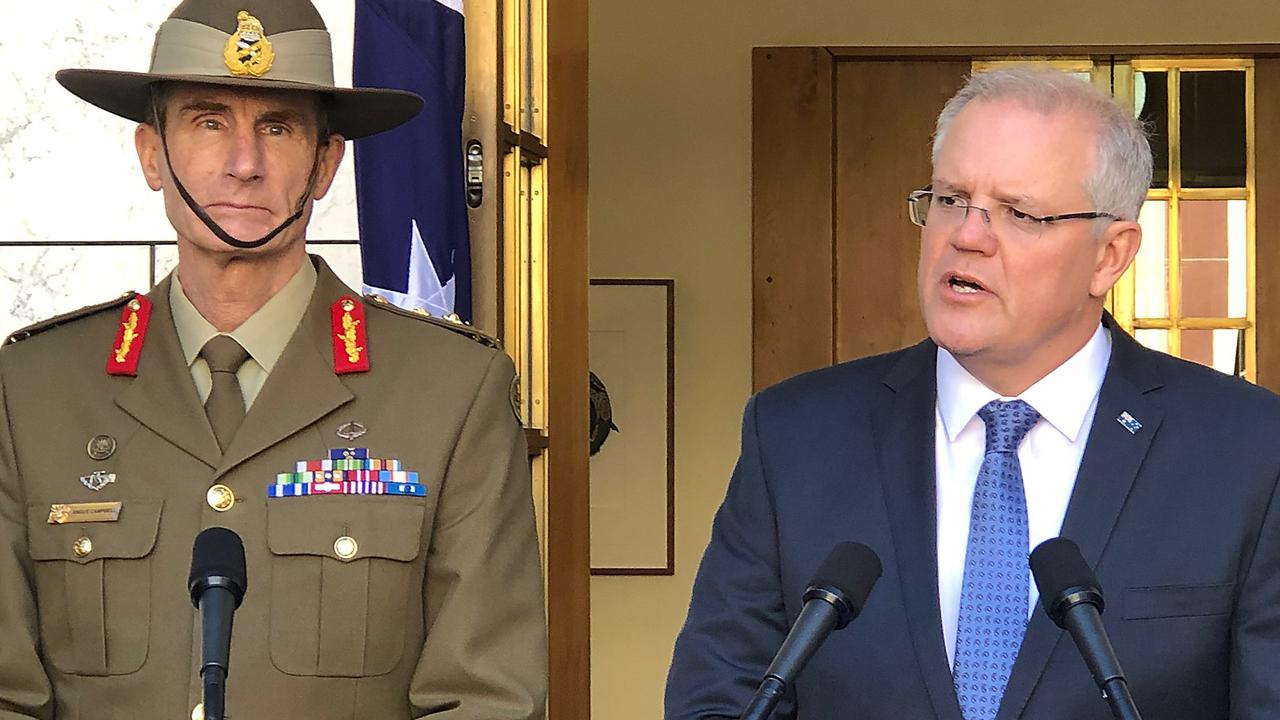Australia to join US in Gulf maritime security mission
Prime Minister Scott Morrison has announced Australia will join the US in its military effort in the Gulf amid heightened tensions with Iran.
Australia’s military will be entering the Persian Gulf after months of heightened tensions between the US and Iran.
Prime Minister Scott Morrison today announced we would join the US-led mission to protect shipping through the Strait of Hormuz, a narrow sea strip that serves as one of the world’s most important choke points.
WHY IS AUSTRALIA GETTING INVOLVED?
The Strait of Hormuz is a thin sea strip located between the Persian Gulf and the Gulf of Oman, which serves as one of the world’s most important trade routes for oil shipments.
Defence Minister Linda Reynolds stressed Australia’s involvement would be limited to protecting shipping lanes, saying it was about “de-escalating rising tensions in the Gulf”.
These tensions have been brewing for a long time.
Earlier in the year, US President Donald Trump announced “hard-hitting” sanctions on Tehran while urging the Middle Eastern power to “abandon its nuclear ambitions”.
In June this year, oil tankers Front Altair and Kokuka Courageous were hit with explosions — an attack for which the US blamed Iran, and Iran denied involvement in.
The tankers were struck in the same area where the US accused Iran of using naval mines to sabotage four other oil ships in an attack the previous month.
The following month, a British tanker was boarded and captured by Iranian forces, in retaliation for the seizure of an Iranian tanker a few days prior.
Amid all this, US Secretary of State Mike Pompeo formally asked Australia to play a key role in a new “global coalition” that would secure itself against Iran — a prospect Mr Morrison didn’t rule out at the time.
Now, the Prime Minister has confirmed Australia will provide a frigate, a P8 maritime surveillance aircraft and support staff to the mission, which will also involve British forces.
There will be about 200 Australians involved in the deployment, including 177 Defence personnel on the warship and 10 on the surveillance aircraft.

Mr Morrison said the government had been concerned over incidents involving ships in the strait over the past few months.
“This is a threat to our interests and ensuring global trading lanes,” he said. “30 per cent of refined oil destined for Australia travels through the strait.
“It is a threat to our economy.
“The rules concerning freedom of navigation, particularly under the United Nations Convention on the Law of the Sea, whether that’s in the Middle East or indeed closer to home, we are part of that.”
Mr Morrison said the issue impacted global security and stability.
“We support the concept of an international maritime presence in the region that would enable the international community to respond to incidents and threats as they occur to ensure freedom of navigation and the free flow of commerce,” he said.
“This will be an enhancement of our existing and longstanding contribution to counter piracy and counter-terrorism missions in the waters of the Middle East, Africa and South Asia.
“Australia will defend our interests, wherever they may be under threat.”
He also pointed to broader economic challenges, saying rising tensions between major powers are creating apprehension in the global economic sphere.
“The international environment is very difficult. The global economy is facing rising headwinds. Rising geopolitical tensions and protectionism is weighing heavily on global confidence and growth,” he said.
However, the Prime Minister denied we were being pulled into another US-led military effort in the Middle East.
“The United States is pulling this together, but it’s also the UK’s view that this provides the opportunity for others to be involved in a multinational engagement,” he said.
Australia has had a near continuous presence in the Middle East since the 1990s. But there have been fears over what our direct involvement against Iran could mean for our own economy.
WHY THE STRAIT IS VITAL TO AUSTRALIA
The global economy relies heavily on oil, which means the sheer volume of it flowing through the Strait of Hormuz every day is crucial.
In recent months, a series of attacks on tankers in the strip has led to a major escalation in tension between the US and Iran.
Mr Morrison said today about 15 per cent of crude oil and 30 per cent of refined oil destined for Australia came through the Strait of Hormuz, meaning instability in the region also posed an economic threat to us.
In Australia’s case, this is in part because our nation is over-reliant on the global oil supply.
Since 2012, Australia has been in breach of its international obligations to hold a 90-day minimum of fuel reserves as set out by the International Energy Agency (IEA).
This is basically the amount of crude oil we have onshore that we can dip into or share if the global oil supply faces disruptions.
Based on our current supply, we could only sustain ourselves for 55 days — the only one of the IEA’s 30 member states not meeting its 90-day obligation.

Because the strait is so thin, it means that anyone wanting to cause chaos on the world’s oil markets can easily reach the ships passing though and escape back to land in almost no time at all.
If chaos was to break out, we could find our own oil supplies rapidly dwindling.
Australia’s latest military pledge should not come as a major surprise. Last month, experts told news.com.au it was likely we would be called on to participate in the event of conflict, in line with our historical commitments.
Going back to the 1950s, the US and its allies — including Australia — spent millions of dollars over many decades to ensure the region was secure.
This escalated to a full-on conflict, known as the Tanker War, between Iran and the US in the late 1980s.
Experts have also said if we chose to donate our resources, we should stress the actions are “designed to uphold freedom of navigation in the region” without “demonising” Tehran.
FOR HOW LONG WILL AUSTRALIA BE INVOLVED?
Mr Morrison described the deployment as “modest, meaningful and time limited”.
Initially, Australia will be involved for at least six months. However, the Prime Minister made it clear the mission could be extended.
The deployment raises questions about the rules of engagement, and what Australian troops will be able to do in response to any aggressive behaviour that comes their way.
Australia’s Chief of the Defence Force Angus Campbell was asked what the frigate would do if a commercial ship was seized, and whether his troops would be allowed to open fire.
“Our people are very well trained and they will be operating under international law,” General Campbell told reporters.
“Their presence will be to support security of shipping and freedom of navigation.”

Labor supports the decision to send Australian forces to the Strait of Hormuz. Acting opposition leader Richard Marles said the size of the deployment and tight time frame were both appropriate.
“Freedom of navigation for Australia as a trading island nation is completely central to our national interest,” Mr Marles told reporters in Sydney today. “The vast bulk of our trade goes by sea and trade forms a very large part of our national economy.”
So far the US-led international coalition includes the United Kingdom, Australia and Bahrain.
But the mission will be a key topic of discussion when Mr Morrison meets the leaders of the seven wealthiest advanced countries in France this weekend. Mr Morrison has spoken to the UK’s new leader Boris Johnson several times ahead of his trip to Biarritz.
“(The G7 meeting) is an important time, I think, to reinforce these shared values in today’s world — democracy, respect for human rights, international law and free markets,” he told reporters.
— with wires



